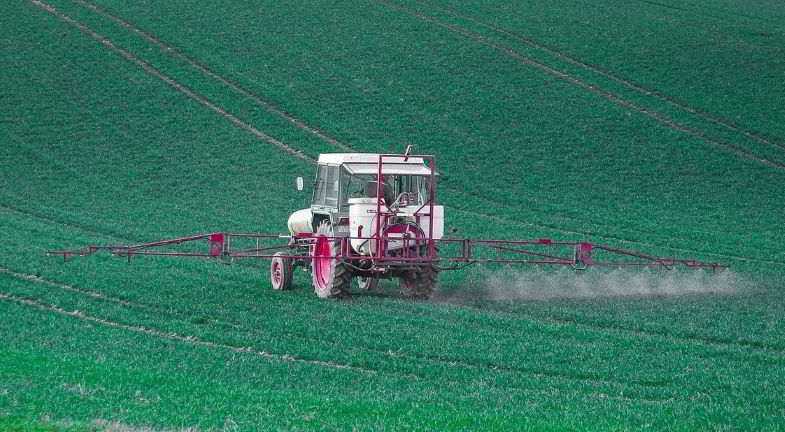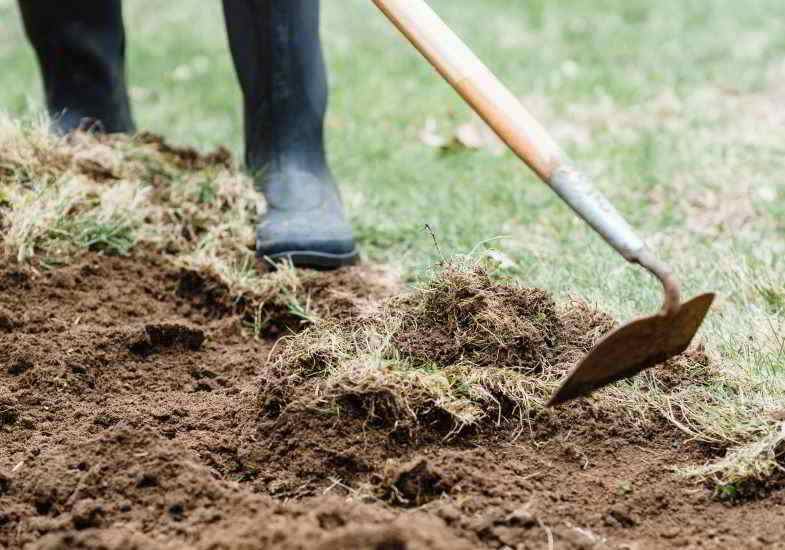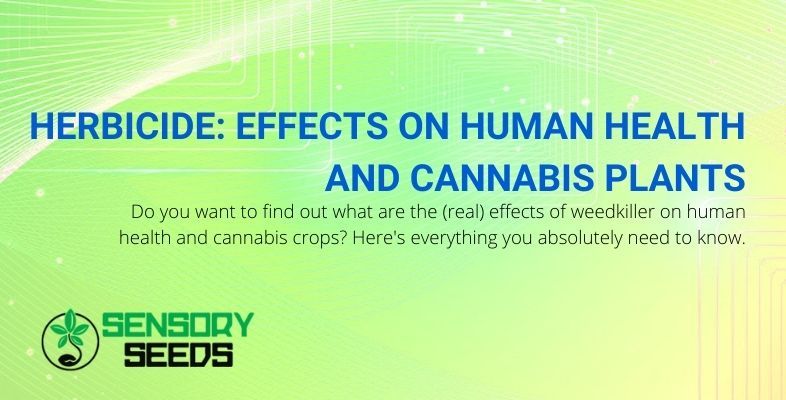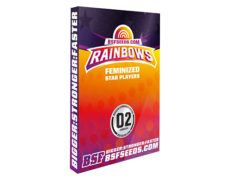Published on: 12/07/2021
Do you want to find out what are the (real) effects of weedkiller on human health and cannabis crops? Here’s everything you absolutely need to know.
Chemical herbicides and pesticides have been used around the world for many years to eliminate weeds in both agriculture and cities.
While the side effects of these substances were previously underestimated, many alarming facts are now coming to light regarding both humans and new crops.
In this article, we would like to inform you about the main news concerning herbicides, their effects on human health, and the repercussions they can have on subsequent plantations.
What are the consequences if humans breathe in herbicide?
What happens if you plant cannabis seeds in the soil where the herbicide has been used?
Here is everything you should know about pesticides and their effects.
What is an herbicide and what are its effects on human health?
Herbicides are chemicals that are used, often irresponsibly, to quickly and conveniently eliminate most weeds.


Although every herbicide should be used in precise doses, unfortunately, it is not always the case and their use is often abused, with inaccurate and abundant dosages, or by sprinkling it on the soil too frequently.
In non-organic cultivation, weedkiller is often used before planting marijuana seeds or other varieties of plants, without considering the consequences.
But what are the repercussions of these products for the user?
If a farmer happens to inadvertently inhale some herbicide, luckily, the consequences are not as alarming as with other substances, but only if the doses are not high.
If, on the other hand, the doses inhaled are high, it is important to get to an emergency room immediately to prevent the first signs of discomfort from turning into a very serious intoxication.
However, it must be said that human exposure to herbicides does not only occur directly during the application, but the substances contained in them can also be assimilated through water and plants grew after use.
According to recent studies and, in particular, one published in 2015 by the International Agency for Research on Cancer (IARC), the herbicide may be carcinogenic to humans and appears to interfere with the endocrine system.
Other studies have confirmed this theory by feeding rats GMO cereals, grown with the help of glyphosate: after a while, the animals developed tumors.
In short, the herbicide should be used as little as possible and with great caution.
Let us now see what effects this substance has on the environment.
Read also: Legal marijuana : 3 reasons to buy your collectable seeds at SensorySeeds
Herbicide: health effects on the environment and hemp plants.
Herbicides, although there are different types (total herbicide and selective herbicide), are usually able to exterminate any plant species on which they are used.
Unfortunately, as well as acting on plants, they penetrate the soil, polluting not only the land but also the groundwater.
According to an ISPRA report on pesticides, it has emerged that herbicides, and in particular glyphosate, are present in large quantities in Italian waters.
However, tests carried out in Mississippi, in the US, and elsewhere have shown that glyphosate is even detectable in rainwater.
You’re probably wondering how long the herbicide lasts in the soil.
Well, contrary to what was thought years ago, herbicides can accumulate and can persist in the soil for several years.
It all depends on the doses used.
Even when using standard doses, however, the herbicide can remain in the soil for up to almost a year.


This news is not very reassuring, as the herbicide not only kills weeds as well as pollutes the soil and the water, but it also destroys microorganisms that are essential for subsequent crops and consequently promotes the proliferation of pathogens that trigger disease in new plants.
In the case of hemp plantations, even if you use fast seeds or opt for auto flower seeds and feminized seeds, it is difficult to achieve results as satisfying as you would with healthy soil.
Of course, some herbicides allow you to proceed with sowing after just a few days, but if there is a build-up of these substances in the soil, the consequences are immediately apparent.
Some species of hemp fail to grow, or you end up with deformed shoots.
If the plants do succeed, however, the leaves may take on a particularly dark color, or sometimes yellow veins form. In other cases, the edges of the leaves burn or curl.
In short, cannabis plants can be greatly affected by the use of herbicides, and even if the plant manages to develop fully, likely, the aromas will not be the best.
Read also: How to grow cannabis seeds (without breaking the law)?
To conclude.
As you can see, the effects of the herbicide, although still the subject of numerous studies, do not bode well.
That’s why experienced cannabis growers, as well as choosing the best BSF cannabis seeds, prefer organic cultivation or generally limit the use of chemical pesticides.
After this insight and reminding you that growing cannabis is not permitted in France, we invite you to take a look at our online marijuana seed store.
Choose from many varieties to complete your collection.
We look forward to seeing you at Sensoryseeds!









